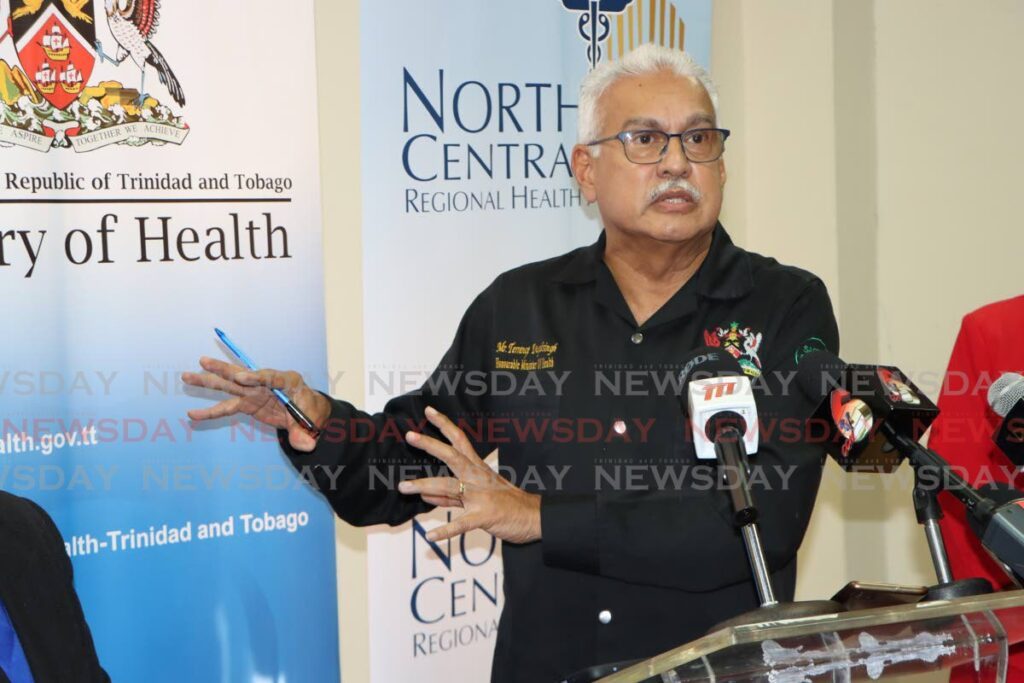Health Minister: Trinidad and Tobago frontrunner in fighting non-communicable diseases

Health Minister Terrence Deyalsingh says his ministry is embracing a life-course approach to health, placing focus on the concept of wellness.
Deyalsingh was speaking at the Baby Friendly Hospital Initiative (BFHI) accreditation ceremony for Sangre Grande Hospital at the Ministry of Health’s new Queen’s Park Savannah headquarters.
He urged the public to commit themselves to wellness through daily habits, citing the significance of this in combating non-communicable diseases.
“Wellness is simply the indoctrination of daily habits into each person’s life. From morning prayers to mindful dietary choices, these daily habits contribute to an individual’s overall well-being.’
He said breastfeeding is a crucial aspect of early childhood health and highlighted it as a wellness habit for mothers.
Deyalsingh commended the success of the national breastfeeding policy, saying the rate of early induction of breastfeeding has surged from 20 per cent in 2020 to 92 per cent at present, with the Eastern Regional Health Authority achieving an even higher rate of 98 per cent.
The health minister said the ministry is on a mission to encourage mothers to continue breastfeeding for two years.
He quoted posters from the Breastfeeding Association that say breast milk does not expire and is never recalled, adding that it is clean, safe and gives babies essential antibodies.
Speaking about the country’s global status, he said Trinidad and Tobago has received recognition as one of 22 frontrunner countries addressing the issue of non-communicable diseases.
Deyalsingh said Trinidad and Tobago is one of nine in the Caribbean contributing significantly to global health efforts.
“This acknowledgement underscores the tangible benefits derived from the nation’s concerted efforts in the healthcare sector.”
He said the main focus of the ministry’s initiatives has been combating diabetes and hypertension, two of the most prevalent health challenges.
He discussed the HEART project, which was launched with the support of the Pan American Health Organization (PAHO) and aims to reduce average blood pressure among patients to 140 over 90.
Sharing data for 2023, he called the programme a success, saying it added to Trinidad and Tobago’s status as a frontrunner in public healthcare globally.
Deyalsingh said enrolment in the HEART programme reached 69,207 people, of whom 29,632 now have their blood pressure under control, saying it represents a remarkable increase from the 37 per cent control rate six months earlier.
“That is 29,000 fewer possible strokes, 29,000 fewer possible heart attacks, 29,000 fewer possible cardiovascular -disease cases.”
He delved into the ministry’s strategy for managing diabetes at the local health centre level through diabetes wellness centres, calling them boot camps that target people with uncontrolled diabetes, offer intervention and support to bring their health under control. He said the centres have lowered complications such as lower limb amputation.
A total of 811 people have benefited from these diabetes wellness centres.
Acknowledging the country’s journey in public health, Deyalsingh stressed the importance of policy implementation. He said his ministry is dedicated to both policy formulation and implementation.
While celebrating achievements such as the BFHI, the minister cautioned against complacency, citing the need to sustain momentum and energy to ensure health initiatives continue to progress.
In closing, he expressed gratitude to healthcare workers, acknowledging the 2.6 million patient interactions daily and saying, despite the challenges, the “positive patient interactions” serve as a testament to the unwavering commitment of healthcare professionals.

Comments
"Health Minister: Trinidad and Tobago frontrunner in fighting non-communicable diseases"